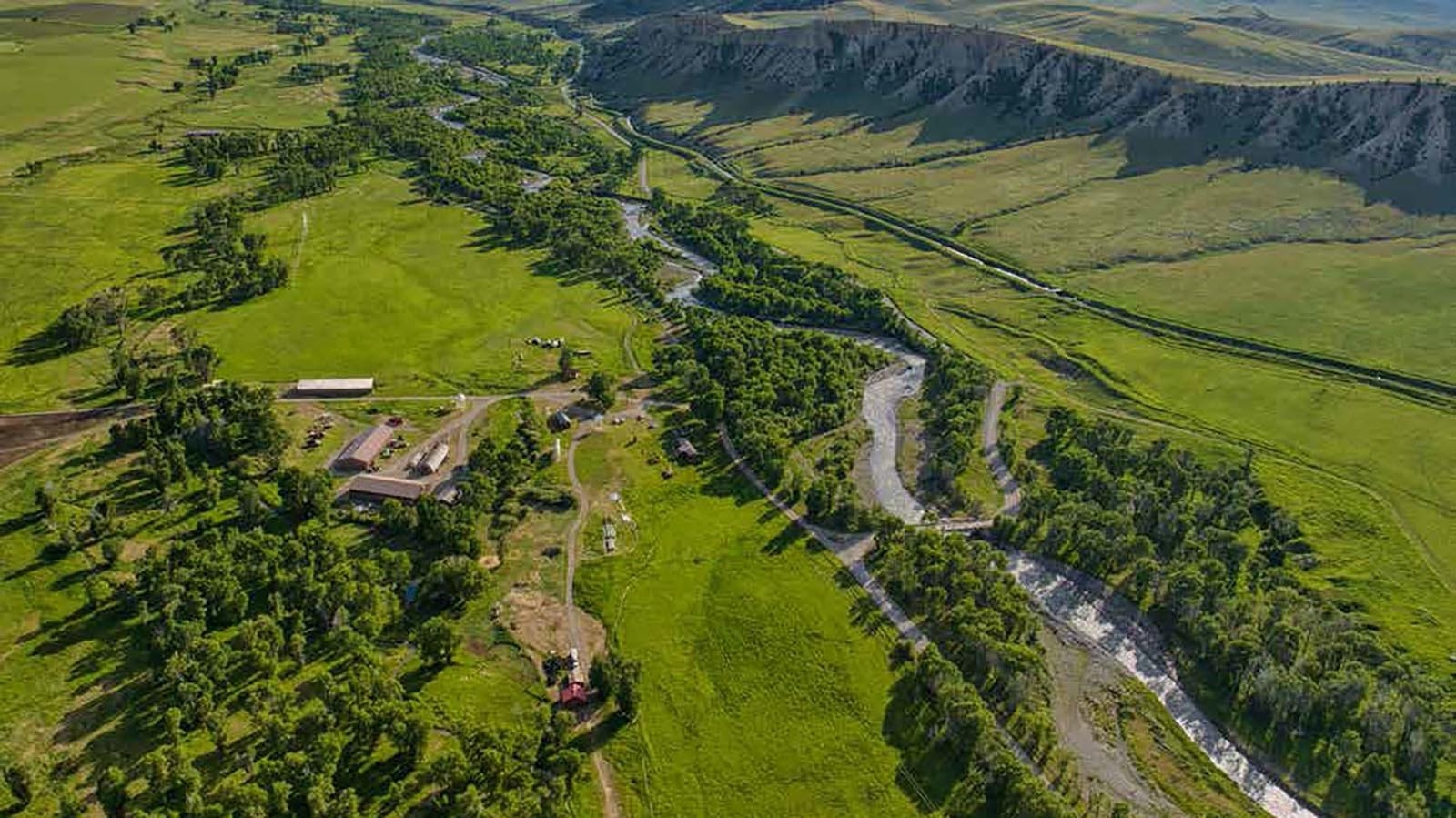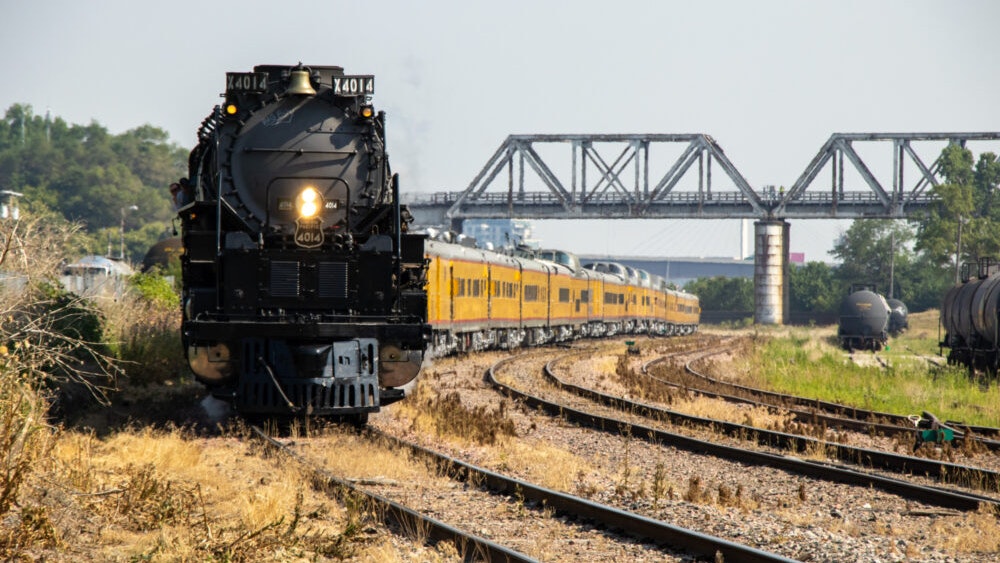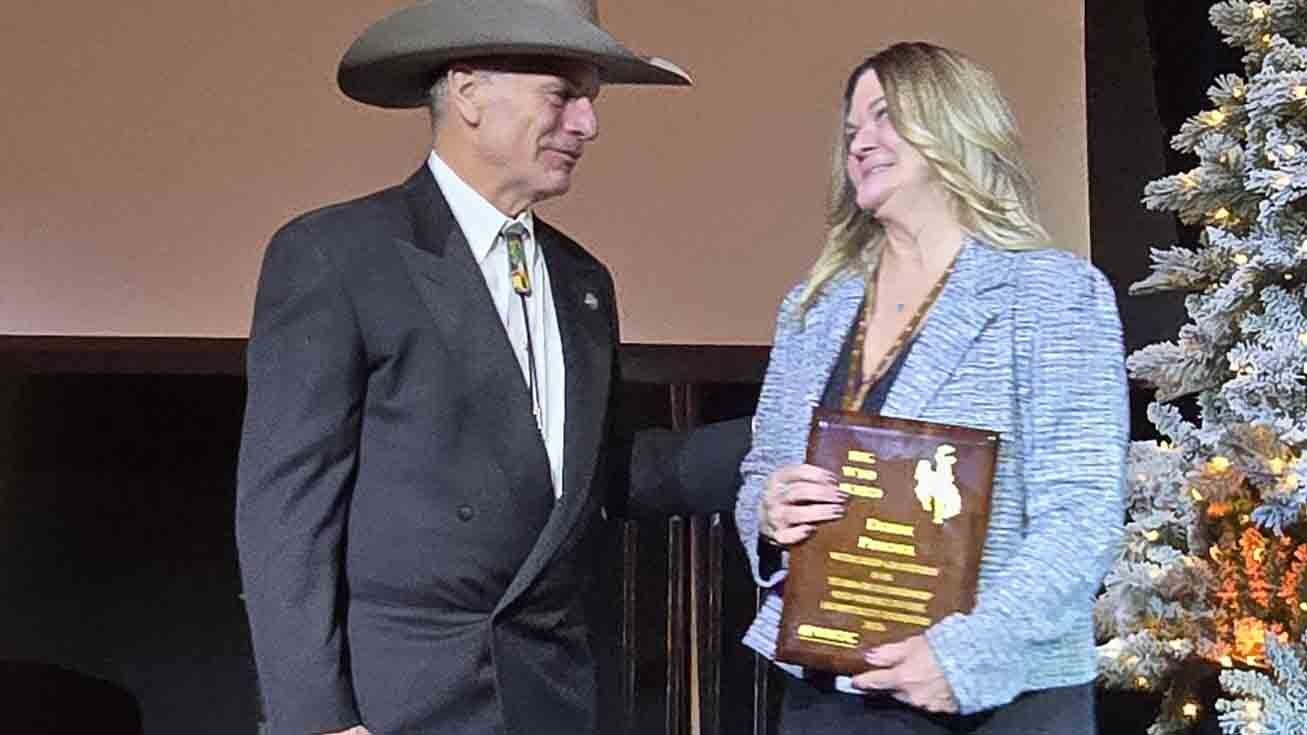A historic Wyoming ranch that has been in the same family since 1895 has just landed on the market, and it’s a humdinger of a listing.
The Antlers Ranch near Meeteetse includes 16,532 deeded acres and control of more than 40,000 acres of pristine land that looks like something from a movie set. It ranges from river bottoms and valleys at the low point to timbered alpine peaks at the high point — and everything in between.
The varied topography supports just about every wildlife imaginable in Wyoming. This is where not only deer and antelope play, but trophy moose and elk, not to mention trophy bears and trophy fish, too.
The Antlers Ranch is listing for $85 million. That makes it the most expensive listing in Wyoming now and, for once, it’s not from Jackson Hole.
“When you think about what was going on in the West back in the late 1800s, this ranch is very much a part of that story,” Livewater Properties associate broker Latham Jenkins told Cowboy State Daily. “It’s one of the legacy ranches in the Western U.S.”
The ranch was founded by a German immigrant — lured as many were by the promise of gold — who traveled up the Missouri River on a flatboat to Fort Benton in Montana, before disembarking and making his way to Wyoming.
Initially, the ranch was begun to feed all the miners searching for gold in Kirwin, but Ernest May Sr. decided to trade his interest in the mining company that owned the Antlers Ranch for sole ownership of the ranch.
“People refer to it as Little Yellowstone,” Jenkins said. “And that has to do with the amount of controlled acreage. It’s a phenomenal amount of wildlife habitat, and the reference to Little Yellowstone is because it has more than 330 species of wildlife on it, and it’s connected to the Shoshone National Forest, which is part of the Greater Yellowstone.”
Yes, It’s A Little Like The Television Show
But there’s another reason people refer to it as Little Yellowstone.
“The television show is like this ranch,” Jenkins said. “These are private, deeded acres with a combination of leased acreage and the Forest Service and BLM. And they don’t graze cattle, they graze bison. The bison makes it feel like ‘Yellowstone.’ And this is where the bison were meant to be.”
The Mays ran 700 to 750 head of cattle on the ranch year-round until 1997, after which Michael May changed over to bison.
“At the time, the cattle industry was at a low point, and bison were less expensive,” Jenkins said. “They require little labor, they calve on their own and rarely require winter feed.”
The ranch also has more than 18 miles of private “live” water — rivers and creeks — dating back to territorial water rights.
They have been managed to maintain an ideal, private, cutthroat trout fishery in two locations on the ranch, a remarkable achievement, considering that out of 14 unique subspecies of cutthroat trout in North America, two are extinct and the remainder are not doing all that well anywhere else.
Wildlife also has been managed carefully.
“It has phenomenal big game to hunt on it,” Jenkins said. “And that has a lot to do with the fact that they have allowed very limited hunting on the ranch. That’s allowed the propagation of the best genetics.”
While most hunters typically kill off the biggest bulls, on the Antlers Ranch, the big boys have been allowed to roam and propagate a population of equally big sons.
These include bull elk more than 380 inches, whitetail deer over 170 inches, mule deer over 190 inches, and antelope surpassing the minimum score for Boone and Crockett.
It’s A Turnkey Working Ranch
Antlers Ranch is a working ranch with plenty of housing for both its next owners and its staff, as well as a variety of buildings associated with making this a turnkey ranching operation, if the next owners so choose.
In addition to two primary residences, there are also four homes that could be used for staff or guests, or rented — a bunkhouse, a duplex and two ranch-style homes.
The primary owner’s home was built in 1937 and remodeled in 2012, and the secondary owner’s home was built in 1916.
Both of the latter two homes have amazing views of the Absarokas Mountains, which border the ranch on its western side.
From the tallest peak on the ranch, the 8,480-foot-tall Noon Point, it’s possible to see many other high points in the Absarokas and well as the Bighorn Mountains.
The ranch shares a border with 63 miles of federal and state land, which means many of the views are going to be protected forever.
Renée Jean can be reached at renee@cowboystatedaily.com.



















